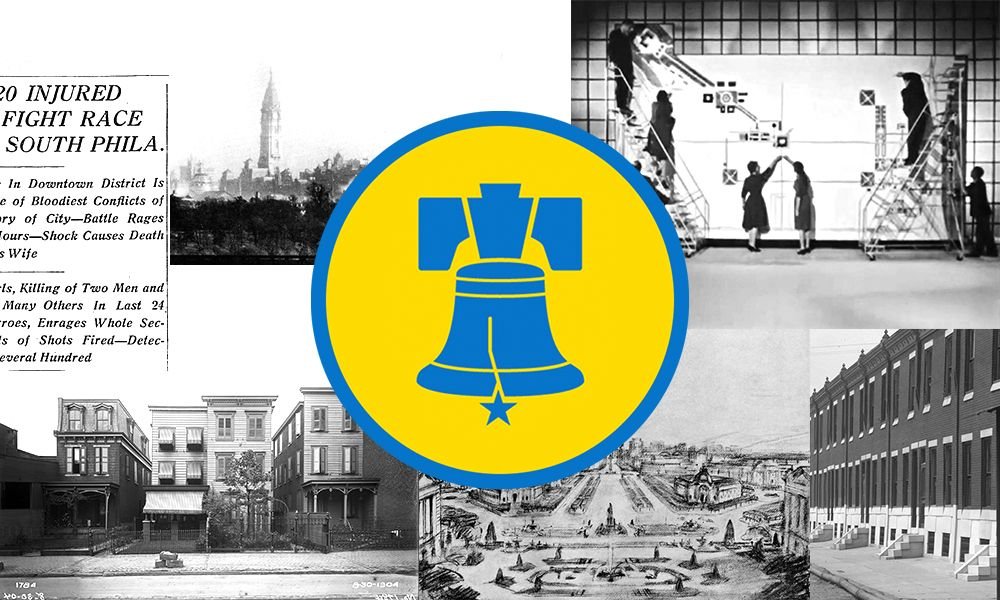
Introducing A Major New Sndbox Initiative
Yesterday, we witnessed the launch of a major initiative by @kenfinkel and his new community account @phillyhistory.
@phillyhistory’s first act will consist of an educational laboratory. The mission of the account will be to explore the potential of education on the Steem blockchain under the umbrella of a graduate-level history course at Temple University (Philadelphia, US).
Each graduate student in the course will create their own Steem account with the help of @sndbox. They will use their blog as a resource to document, archive, research and ask for feedback. This community account - @phillyhistory - will be used to share course resources with the broader Steemit public while simultaneously curating student posts and evaluate them through upvotes. With the funds raised, the class will collectively be able to fund resources for the Philadelphia History Museum and surrounding community. You can read the full mission here.

A view of Temple University Campus in Philadelphia. Source, here.
Cultivating a Blockchain "Campus"
This marks a major step in the ongoing impact we’re seeking out of the @sndbox community. To converge Steemit with an institution is an exciting new venture that we hope and will catalyze a new branch of educational programming built into the Steem blockchain. Temple University will be our very first case-study and opportunity to explore how students can leverage blockchain technology to empower their studies, organize their personal projects, build international relationships revolving around their professional interests, mitigate crippling student tuition, and overall incentivize high productivity and enjoyment.
Decentralizing Education & Collection
Education is ripe for disruption. The age-old systems of linear lecture halls and A-F/Pass-Fail grading systems are subject to the whims of high-powered individuals and bureaucratic structures. Anyone who is in or has recently graduated from higher education knows the extent to which universities have become more like businesses.
So let’s take the Steem blockchain, open up that rigid structure and gamify the student experience. We can reward the next generation of scholars in a way we have never seen before. No longer should students, our most optimistic and potent demographic, have to worry about loans or spend countless hours hunting for grants and scholarships. Instead, we should reward them based on the knowledge that they contribute and produce. Not only is this a great functional alternative, but this should also nurture new forms of knowledge creation on the web as a whole.
For the Spring 2018 semester, Temple University students, faculty, followers and friends will have opportunities to access extensive collections of artifacts and archives throughout the city’s history institutions, with a special focus on the Philadelphia History Museum. The course will mine lost narratives embedded in historical holdings and will breathe 21st century life into vintage collections.

These vintage collections at PHM are rarely accessible to the public, let alone the blockchain! One of our goals is to provide a proof-of-concept; illustrating how 20th century institutions can enliven (and re-value) artifacts of the past.
The Philadelphia History Museum collection consists of more than 130,000 artifacts including furniture, paintings, prints, photographs, books, signage, tools, clothing, maps, architectural models, scrapbooks, clocks, carts, etc. In teaming up with Temple, the PHM is exploring new strategies to enliven and enrich its massive holdings, a collection that is largely curated behind closed doors and locked drawers.

Steem-Powered Brainstorming
So at this point, we’ve set up the framework for an upcoming semester powered by the Steem ecosystem. We’ll organize further with Professor @kenfinkel to bring on a group of curious students and pave a robust roadmap for the Spring. But there’s so much potential to explore ideas of what we could incorporate! Components such as a grading system, peer-reviews, collaborative work, and general exposure are all parts to think more deeply on. We want your opinions, ideas, critiques, and suggestions of how to make this the most unique semester, the first to be fundamentally motivated by decentralized technologies.
@phillyhistory will be a platform for a graduate level course at Temple University: “Nonprofit Management for Historians” (History 5151) with Professor Kenneth Finkel, @kenfinkel in the College of Liberal Arts at Temple University (Philadelphia, US). Show your support by following the account and taking part beginning January 2018!


